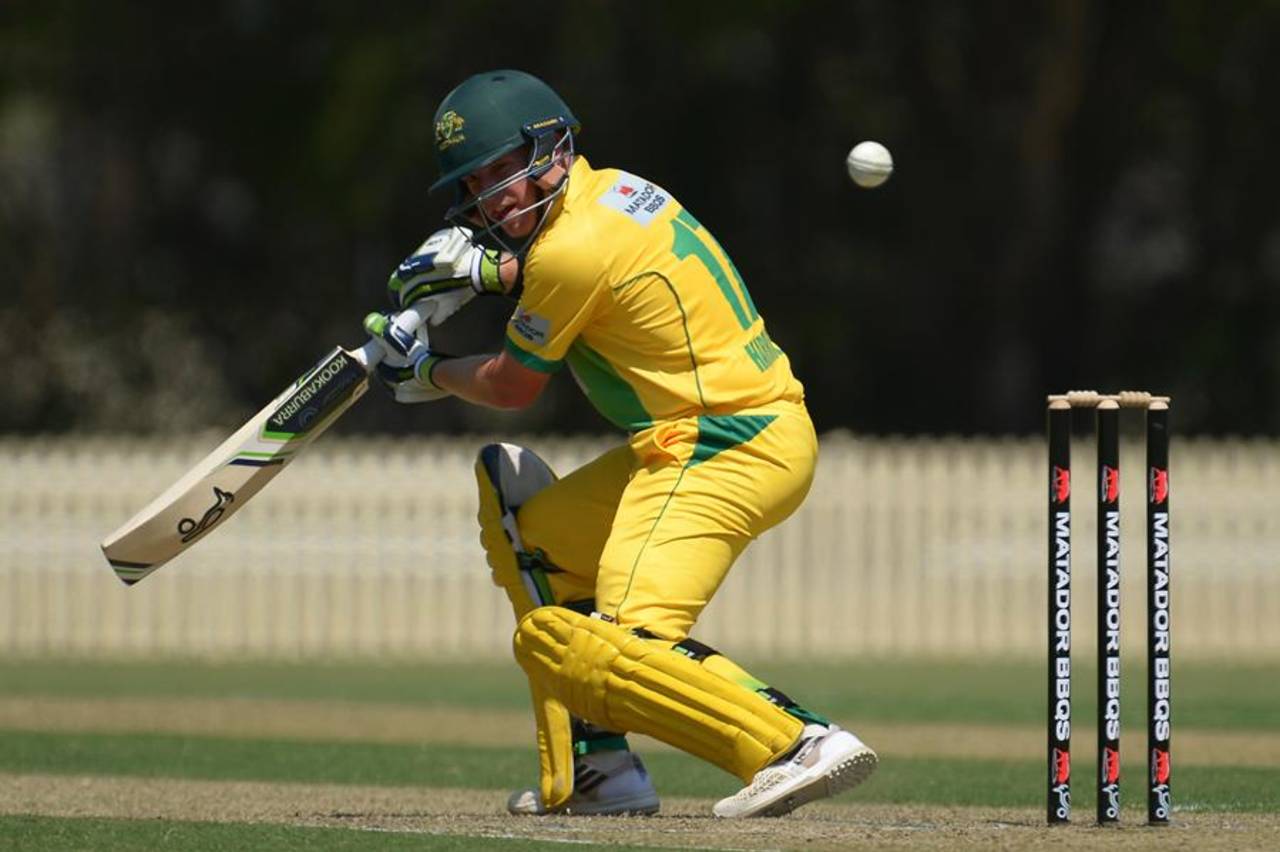Australia's cricketers have stated their opposition to the use of Cricket Australia development teams in domestic competitions, heightening scrutiny around the CA XI to take part in this year's Matador Cup in the second of a two-year trial.
As part of preliminary talks ahead of MOU negotiations due to begin between the Australian Cricketers Association and CA from October 1, player delegates met in Melbourne over the past two days to discuss a broad platform of positions from which to commence talks. Speaking for the players, the ACA executive member
Simon Katich, said that the integrity of domestic tournaments as genuinely competitive environments - rather than purely developmental pathways - had been discussed at length.
"The delegates discussed a number of topics around the structure of domestic cricket, innovations coming into the game and any concerns people might have," Katich told ESPNcricinfo. "The views were consistent in that what is important to the players is that the domestic structure is still seen as a tough competition rather than possibly a development pathway, given the Matador Cup has evolved where there was a CA XI last year and this year over a trial period of two years.
"Things like that can change the dynamic of the competition because it's not actually a state team playing as such. Last year it was a younger team put together from guys who were contracted with different states and not getting a game for their own states. But the delegates were unanimous in the fact they don't want the integrity of the Sheffield Shield or other domestic competitions to be changed because it is seen as a competition to develop players rather than having a tough competition to produce resilience and for guys to then succeed at Test level down the track."
The CA XI was roundly thrashed in initial encounters with full-strength state sides, before improving later on in the competition and defeating Tasmania. "We said initially that we were prepared to back this for a two-year trial and we are sticking to that for the second season as we felt that there were significantly positive results for Australian cricket,'' CA's team performance manager Pat Howard said.
"With the postponement of the Test tour [to Bangladesh] last October, the CA XI came up against very strong state sides, which was wonderful for the competition but was also a tough introduction for the young group. It is important we continue to review the concept again this season, as there were many positives."
Player development pathways have been a source of conflict between the players and CA in the past, notably the introduction of severe age restrictions on second XI competitions and the trial of split innings limited-overs cricket in 2010-11. CA ultimately scrapped both gambits in consultation with its own playing conditions committee. The ACA operations manager Graham Manou recently quit to join CA as the man in charge of talent pathways.
Among others issues, the ACA is seeking equal working conditions for women in the next MOU, though the players are yet to determine whether they will be seeking an increase in their current 24-27% share of the game's total revenue by way of compensation. Katich said that women were at a junction not dissimilar to the men in 1997, when the advent of the ACA itself heralded full professionalism for domestic cricketers in addition to Australian players.
"It's about the women being able to enjoy equal rights as players, and not just around pay, some of it relates to state programs around the country. There's disparities in how some states run their women's programmes compared to others in terms of support staff," Katich said. "We're in a transition period where, a lot of the women are making the decision to commit full-time to cricket, a bit like how it was back in 1997 for the men when the ACA formed.
"In that transition period it's crucial to get it right so the women can make the decision based not only from a financial point of view but also so they can develop their game so the infrastructure is in place for them to train at flexible times and still be able to study or work if and when they need to. It's about getting the women up to speed even with little things like not having to pay for cabs to get in to training and things like that, the injury policy and having the same work condition when they tour."
AFL players are currently arguing for a similar fixed revenue percentage arrangement to that enjoyed by the cricketers, and there are elements of CA equally keen to roll it back. "The delegates are unanimous that that revenue sharing model should stay; it's worked for 19 years and it continues to make sure we're a genuine stakeholder in the game," Katich said. "Both the men and the women were unanimous about that, knowing that part of the plan is to try and develop one MOU that covers both the men and the women. Obviously it's one thing saying that, the other is figuring out the process to get to that point."
Daniel Brettig is an assistant editor at ESPNcricinfo. @danbrettig
